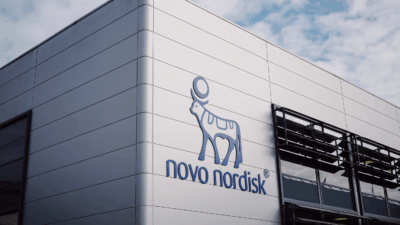
Sign up for smart news, insights, and analysis on the biggest financial stories of the day.
The doctor will see you now, but it could be a long wait for the nurse.
A couple years after garnering the well-deserved title of society’s greatest heroes, morale among America’s nurses is approaching an all-time low. So much so that a recent study courtesy of McKinsey warns of a massive labor shortfall in the industry. All while the US population hits an old-age milestone, mind you.
On Life Support
A recent survey by AMN Healthcare Services found nearly 1 in 3 registered nurses say they’re likely to seek a new job. For in-patient nurses, or roughly 2 million of the 4.2 million nurses working in the US, that number is closer to 50%, according to The American Association of Colleges of Nurses. And the reason nurses are so unhappy is the same one afflicting people everywhere: burnout. Just last week, more than 1,800 nurses in the Portland, Oregon area went on strike, demanding, among other requests, increases to minimum staffing levels to improve nurse-to-patient ratios — it’s a campaign nurses have waged since long before the pandemic, an issue that also spurred a three-day strike among 7,000 New York-based nurses in January. “Not having a manageable workload” was one of two leading reasons respondents to a McKinsey survey cited for wanting to quit. And the more nurses who quit, the worse the workload gets for their remaining co-workers.
And it’s not just nurses. The morale crisis has led to more than 2 million job openings across all of healthcare in April, just short of a record set last year, according to Bloomberg. McKinsey noted in a study last month that the US healthcare system risks a shortage of 450,000 nurses. Unfortunately, the pipeline to fill those jobs is flowing like a slow-drip IV:
- For the first time this century, student enrollment in nursing programs decreased in 2022, by more than 3%. And fresh grads aren’t offering any ringing endorsements: According to the AMN survey, young nurses are significantly less happy than older veterans.
- And while the Commission on Graduates of Foreign Nursing Schools says the 17,000 visa-seekers applying to its screening program is roughly double pre-pandemic norms, relying on immigration still hardly fills the gap.
“We’ll never make up for those shortages by bringing people in from abroad,” Megan Cundari, senior director of federal relations at the American Hospital Association, told Bloomberg.
Switching Gears: The sputtering Wall Street job market may be just what the doctor ordered. The pandemic pushed many to consider a career change out of nursing, it also convinced many to change careers into nursing. “We’ve found a lot of people from finance and so forth were coming to nursing because they felt like they needed a purpose,” Kathleen Polley-Payne, executive director of the School of Nursing at the University of St. Augustine for Health Sciences in Florida, told Bloomberg. Think managing a whole hospital floor full of patients is draining? Try managing a hedge fund.











